5 Reasons to Become a Nurse in Florida
Are you considering a nursing profession in Florida? Recent information published by the U.S. Bureau of Labor points to the state as a great place for registered nurses to find work. Not only do Florida RNs have access to a wide range of employment opportunities, working as a nurse in Florida also comes with its own set of advantages. Our dedicated faculty at FVI School of Nursing have compiled the top five reasons to become a nurse in Florida, while our success coaches have created a useful infographic for those considering a nursing career in the Sunshine State.

1. Florida Ranks High for Nurse Employment
In the most recent employment numbers published by the U.S. Bureau of Labor Statistics in 2018, Florida ranks 4th for highest employment of nurses by state.1 Just below California, Texas, and New York, this makes Florida one of the largest employers of nurses in the country. With the demand for nurses in Florida expected to rise, employment rates will also increase.
2. Florida Is a Popular Retirement State
One of the reasons the number of nurses and nursing jobs in Florida is so high is because of the large number of retirees living here. Florida has historically been a popular retirement destination and continues to be which contributes to the state’s substantial nursing demand. Like many states across the country, Florida is facing an aging population that will need acute and long-term care. Home health agencies and nursing facilities will be looking for Florida RNs to provide that high-quality care.
3. The Demand for Nurses in Florida Continues to Grow
According to a 2010 report by the Florida Center for Nursing (FCN), there will be over 50,300 vacancies for Florida RN jobs by 2025.2 This projected shortage will be driven by current healthcare trends and the state’s aging populations. As more nursing homes and rehabilitation centers pop up, the more long-term healthcare positions will need to be filled.
4. Magnet Hospitals Offer Advancement Opportunities
The American Nurses Credentialing Center (ANCC) gives out the “Magnet Hospital” designation to healthcare facilities that have demonstrated a high percentage of satisfied registered nurses as well as excellence in nursing and patient care. Hospitals bestowed this coveted honor easily attract nurses and patients. Of the 488 Magnet hospitals in the country, 23 are in Florida. Florida RNs working in magnet hospitals report higher job satisfaction and more career advancement opportunities.
5. Average Florida Nursing Salaries Are Respectable
According to the 2018 reports by the U.S. of Labor Statistics, the annual median salary for registered nurses in Florida is $66,210 1, which is an increase from the average annual salary of $64,890 reported in 2017.3 Salaries range from $46,550 to $83,390 with nurses earning an average of $31.07 per hour. While that is slightly below the national average, Florida nurses can save more of their income since they don’t have to pay an individual income tax.
If you are asking yourself if you should become a nurse in Florida? Just know, working as a nurse in Florida comes with a variety of advantages including the ones listed above. Before you can get your license from the Florida Board of Nursing, you’ll have to attend nursing school. That’s where FVI School of Nursing has got you covered!
FVI School of Nursing and Technology offers an extensive roster of RN nursing programs in Florida and NCLEX review courses to help you get your ADN and license. At our nursing and nursing aide school, our expert team of instructors also teach mental health technician classes, pharmacy technician training, phlebotomist aide programs, and medical assistant training programs in Miami and Miramar. Contact us or call 786-574-3350 today to learn more about our healthcare programs and admissions process!
Sources
- Bureau of Labor Statistics – Occupational Employment and Wages, May 2018, 29-1141 Registered Nurses
- Florida Center for Nursing – RN and LPN Supply and Demand Forecasts, 2010-2025: Florida’s Projected Nursing Shortage in View of the Recession and Healthcare Reform
- Bureau of Labor Statistics – Occupational Employment and Wages, May 2017, 29-1141 Registered Nurses










